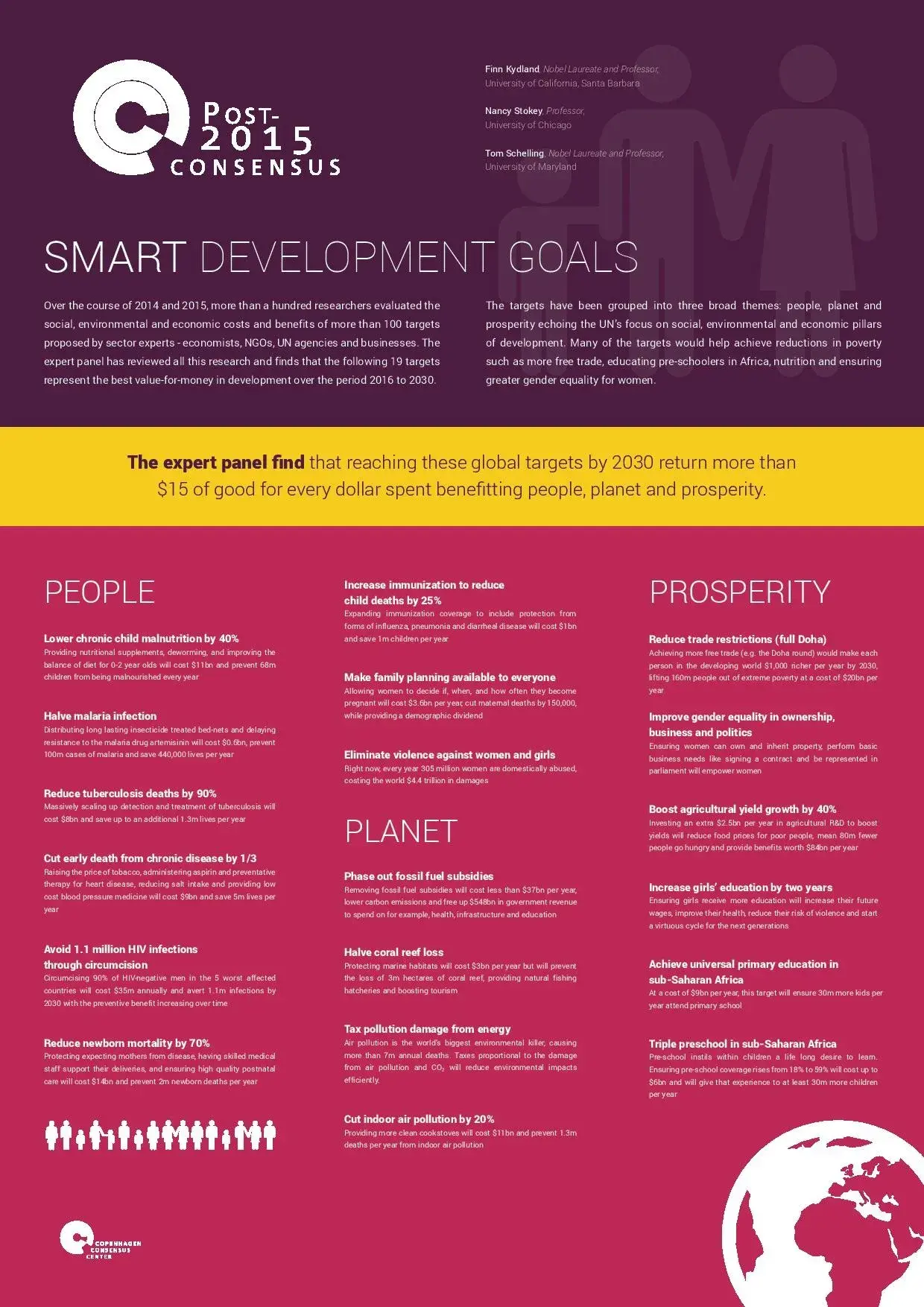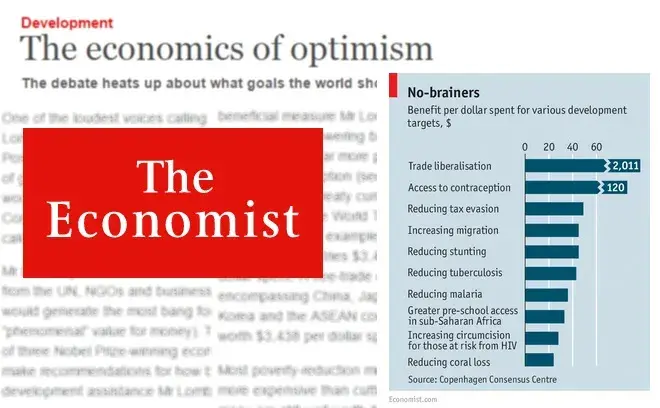Climate Change: What's the smartest SDG target?

As reported on Forbes.com investing 0.5% of GDP into green energy research and development funded by a low and slowly rising carbon tax will return $11 for every dollar spent.
Why is this important?
Isabel Galiana, the lead author on our climate paper, argues that the failure to implement and achieve emissions reductions targets is not simply a matter of lack of political will. Rather, the problem is one of energy technology: current technology is not ready to provide reliable, cheap non-polluting energy for the needs of a modern society.
At the same time, emissions reduction targets, for example keeping temperatures 2°C below pre-industrial levels, are too costly under current technology, returning less than a dollar for every dollar spent.
This is why investing more in energy RD&D is the best strategy to combat climate change. By innovating more reliable and cheaper green energy, we ensure emissions reduction targets can be effectively met. The author suggests that we can fund the RD&D with a low and slowly rising carbon tax.
You can read all the papers on climate change here and download the one page PDF here.
The smartest targets for the post-2015 development agenda
What are the smartest targets for the post-2015 development agenda?
In a world of limited resources, we can’t do everything, but how should we prioritize? The Copenhagen Consensus Center provides information on which targets will do the most social good relative to their costs. The final decision on choosing goals will definitely rest on a number of factors, not just economics – but knowing the costs and benefits provides an important piece of information.
The Post-2015 Consensus brought together, renowned experts from the UN, NGO and private sectors with 60 teams of economists to produced 100+ research papers to establish the most effective targets for the post-2015 development agenda within 22 core issue areas: Air Pollution, Biodiversity, Climate Change, Conflict & Violence, Data for Development, Education, Energy, Food Security, Gender Equality, Governance & Institutions, Health: Chronic Diseases, Health: Health Systems, Health: Infant Mortality & Maternal Health, Health: Infectious Diseases, Infrastructure, Illicit Financial Flows, Nutrition, Population & Demography, Poverty, Science & Technology, Trade, and Water & Sanitation.
An Expert Panel including two Nobel Laureates has reviewed all of this research and identified 19 targets that represent the best value-for-money in development over the period 2016 to 2030.
Only have three minutes? Watch our introduction video to the Post-2015 Consensus project.

Making prioritization a factor in the post-2015 debate
An overview of Copenhagen Consensus' ground-breaking research which is shaping the thinking for the 193 governments about to prioritize the smartest development goals for 2016-2030. If you've just read the article in The Economist you might be interested in exploring more about our project, and the research we've undertaken so we have put together an online supplement with more in-depth information.


